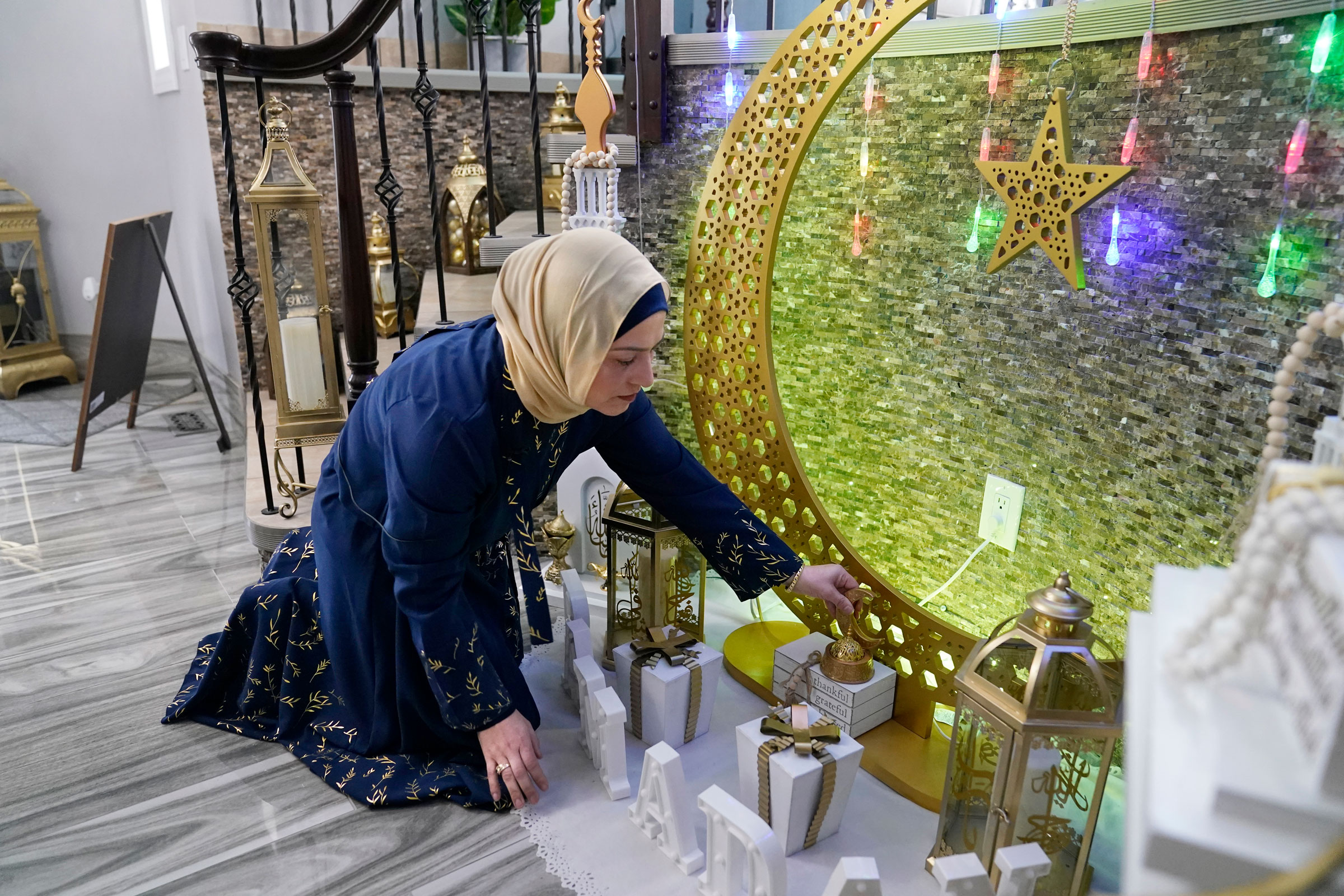When Abdullah Hammoud was elected mayor of Dearborn, Michigan, last year, he became the city’s first ever Muslim and Arab American leader. This week, he is making history once again—this time, by making Dearborn the first U.S. city to offer Eid al-Fitr, one of Islam’s major holidays that marks the end of Ramadan, as a paid holiday for city employees.
Hammoud, whose family hails from Lebanon, tells TIME that he didn’t set out for Dearborn to be the first. In fact, he says it wasn’t until after the news was announced that he realized that the city was even setting a precedent. (Representatives from the Council on American Islamic Relations, a U.S.-based Muslim civil rights and advocacy group, confirmed that Dearborn is the first U.S. city to do this.) Rather, the reasons that the mayor cites for giving municipal employees time off on Eid al-Fitr—which translates to “the festival of breaking the fast” in Arabic—are more practical.
Dearborn is known as the Arab capital of North America for its high concentration of Lebanese, Syrian, Palestinian, Iraqi, and Yemeni communities, and the city claims the largest American Muslim population per capita, as well as the country’s largest mosque. For this reason, many of Hammoud’s constituents, as well as many of the city’s employees, are Muslim. When the city entered into labor negotiations with its employees last year, Hammoud says it only made sense to offer employees Eid al-Fitr as well as the Islamic festival of Eid al-Adha, which takes place in the summer, as two additional paid holidays to join the likes of Thanksgiving, Christmas, and Good Friday.
“I’m taking off with my family, employees tend to take off with their families,” says Hammoud of the three-day Eid al-Fitr, which is expected to begin on Friday, Apr. 21. “I think it’s time we modeled that, in the city of Dearborn where we are trying to hire an inclusive and diverse workforce, we should be recognizing their holidays and their faith traditions as well.”

Although Eid has long been informally recognized by the U.S. government, it is not designated as an official public holiday. As a result, Americans Muslims seeking to observe the holiday typically have to request time off from their employer or academic institution. While a number of school districts with sizable Muslim populations now offer Eid as a holiday, including in Dearborn and New York City, they are still very much in the minority. For Muslim community advocates, extending the right to observe the holiday to municipal employees is an important next step. “No other U.S. city has been able to accomplish this,” says Nour Ali, a director at the Council on American Islamic Relations in Michigan. As a Dearborn native, Ali says that this kind of representation has been “a long time coming for us as a city.” Her hope is that what has started in Dearborn doesn’t end there.
These efforts are only likely to increase as the American Muslim population continues to grow. A 2018 study by the Pew Research Center estimates that there are 3.45 million Muslims living in the U.S., or roughly 1.1% of the population. By 2050, that figure is expected to more than double to 8 million.
Read More: Why More Non-Muslims Are Fasting This Ramadan
As Hammoud sees it, being an inclusive city goes beyond just giving time off. “As a city, we’ve always upheld many faith traditions,” the mayor says, noting the city’s annual Christmas tree lighting ceremony (which he says was made “bigger and better than ever” last year with the inclusion of a 30 ft. white fir) and its holiday light competitions recognizing residents who decorate their homes for Christmas, Easter, Passover, and Ramadan.
Dearborn is adding a new tradition to that mix this week. “For the first time in the city’s history, we’re hosting a free Eid brunch for the community,” Hammoud says. In another first, the city put on a weekend “Ramadan Nights” food market this year, where tens of thousands of residents gathered over the course of the month.
While Hammoud concedes that governments can’t feasibly make every religious celebration a public holiday, he does believe that it’s in the power of local leaders to tailor what they can do for communities and to ensure that they achieve the most good for the most people. “What we’re doing is bringing equity into the equation,” says Hammoud. “And this is what it looks like. Everybody feels welcomed and represented. And I think it only adds to the culture of the city.”
More Must-Reads From TIME
- The 100 Most Influential People of 2024
- Coco Gauff Is Playing for Herself Now
- Scenes From Pro-Palestinian Encampments Across U.S. Universities
- 6 Compliments That Land Every Time
- If You're Dating Right Now , You're Brave: Column
- The AI That Could Heal a Divided Internet
- Fallout Is a Brilliant Model for the Future of Video Game Adaptations
- Want Weekly Recs on What to Watch, Read, and More? Sign Up for Worth Your Time
Write to Yasmeen Serhan at yasmeen.serhan@time.com